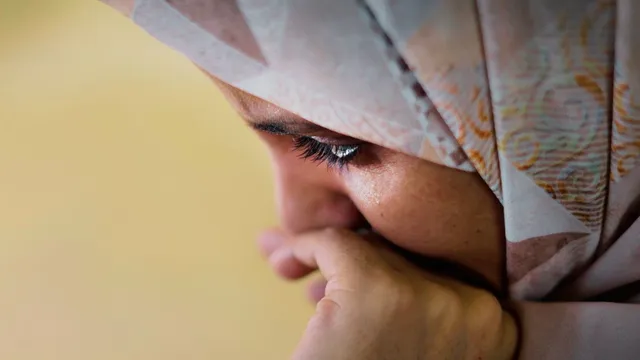- By Supratik Das
- Sun, 15 Jun 2025 10:53 AM (IST)
- Source:JND
At the center of an relentless humanitarian crisis in the Gaza Strip, an often overlooked crisis is unfolding with quiet urgency, that is women's and girls' menstrual well-being. During Israel's months-long siege and heavy shelling, close to 700,000 menstruating women and girls are finding it difficult to cope with their periods with dignity and safety. The United Nations Population Fund (UNFPA) has cautioned that lack of access to essential hygiene products, clean water, and safe facilities has converted a normal biological process into a deep humanitarian and public health emergency.
A Crisis of Dignity for Gaza's Women and Girls
According to UN global data, 1.8 billion people menstruate worldwide, but in conflict areas like Gaza, menstruation becomes far more than a monthly inconvenience, it becomes a human rights concern. In overcrowded displacement shelters and temporary tent camps, girls getting their first period are doing so in unimaginable conditions. They have no sanitary pads, no soap, and no private toilets. “I only had one pad, so I wrapped it in toilet paper to make it last. I couldn’t wash, and the pain was horrible. I sat in silence crying until the end of the day,” a displaced teenage girl told UNFPA. These stories are no longer isolated. Since March, the blockade of humanitarian relief has severely limited the introduction of hygiene material. While a partial suspension of the ban allowed for some relief, distribution of aid which is now organised by channels outside the UN system is still woefully insufficient. Current levels of delivery are far below the colossal demand, with only a small portion of more than 10 million sanitary pads needed monthly reaching Gaza's displaced persons. "This crisis is not just about hygiene; it is about dignity, health, and the protection of basic human rights. “Food keeps us alive, but pads, soap, and privacy let us live with dignity,” a displaced woman from Khan Younis, said in a UNFPA statement.
With over 90 per cent of the region's water and sanitation infrastructure destroyed and water pumping fuel out of reach, the hygiene crisis is assuming a deadly dimension. Women are resorting to makeshift substitutes such as worn-out clothing, used cloths, or sponges which are often unclean and unsuitable for prolonged use heightening the threat of urinary tract infections, reproductive disorders, and long-term health impairment. A father of four girl child from Jabalia recounted his sorrow, "I ripped my single shirt apart so my daughters could wear it as an alternative to pads," he explained to UNFPA. Another girl admitted, “Every time my period comes, I wish I weren’t a girl,” she said to the UN agency. A local physician recounted how normal phenomena like menstruation, pregnancy, and giving birth are becoming traumatic because of the absence of essential materials. "These should be routine experiences. But now, I witness pain, humiliation, and desperation in women's eyes on a daily basis," she said to UNFPA.
The Invisible Emergency
While the health of menstruation has gone disastrous, the overall situation for women in Gaza is equally bleak. As per UNFPA, food insecurity is catastrophic, with one person out of every five starved. For approximately 55,000 pregnant women, every skipped meal increases the likelihood of miscarriage, stillbirth, and giving birth to underweight infants.
ALSO READ: Guns, Grenades, And Gaza’s Hidden Havens: Israeli Army Exposes War Bunker Beneath Hospital | Watch
According to UN nearly 17,000 pregnant and breastfeeding women are projected to require urgent treatment for acute malnutrition in the coming months. Gaza's already fragile health infrastructure is on the brink of collapse after prolonged bombardment of hospitals and healthcare facilities. Healthcare workers do not have the medicines and equipment they need.

